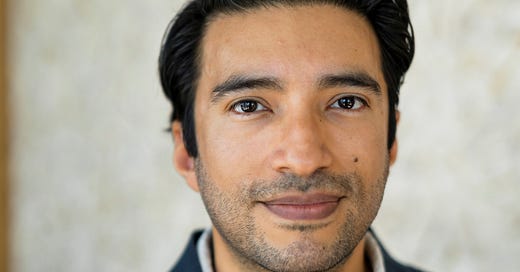How to Love Better (Yung Pueblo)
Listen now (47 mins) | "Big, big, big part of that is understanding that each individual arrives into a relationship with their own conditioning, with their own emotional history..."
You can also listen to this episode on Spotify, or wherever you get your podcasts.
Diego Perez is widely known by his pen name, Yung Pueblo. His books have sold a staggering one and half million copies worldwide, and they’ve been translated into 25 languages. I just finished reading his latest, How to Love Better: The Path to Deeper Connection Through Gr…
Keep reading with a 7-day free trial
Subscribe to Pulling the Thread with Elise Loehnen to keep reading this post and get 7 days of free access to the full post archives.





